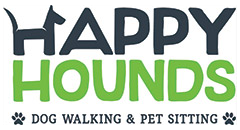Holiday Tips for Pet Safety
With the Holiday season just around the corner, preparations are in full swing: delicious food, festive decorations and unwrapping presents are all cherished festive traditions. Unfortunately, the Emergency Vets are also making preparations for what is sadly one of their busiest times of the year. Make sure your fluffy friends are safe this Yule season with our Holiday Tips for Pet Safety!
Whether your pets will be with you this Christmas, or you will be leaving them at home to travel or visit loved ones, make sure these dangerous items are stowed away and out of reach of your pets for a joyous, stress-free Holiday Season.
FOOD HAZARDS
As we prepare to gather round a Holiday feast, it’s important to remember that our furry friends only require a moment of inattention to snag a quick - and sometimes dangerous - snack off the table. Keep the following foods out of reach, or make sure you lock your pets out of any areas where you are serving and eating or storing the following foods (including guest suitcases):
Chocolate: The number one offender of the Holiday season, chocolate is extremely toxic to pets. Dogs especially are prone to snapping up chocolate chips in baked goods, desserts, or even wrapped sweets.
Grapes, Raisins or Currants: Cheese platters, fruit salads, Stollen, Panettone, Christmas Puddings and fruitcake... While not all dogs are affected by the toxin found in these fruits, some dogs are prone to serious, expensive and sometimes fatal acute renal (kidney) failure.
Macadamia Nuts: While all nuts should be avoided, Macadamia nuts are especially dangerous for dogs. They can cause tremors, fever and temporary loss of the back legs, as well as pancreatitis and choking.
Onions, Garlic, Leeks, Shallots, Garlic and Chives: In low amounts, allium vegetables are not likely to cause damage. In larger quantities or in anemic pets, these vegetables can be the cause of an emergency trip to the vet’s. Symptoms for hemolytic anemia (destruction of red blood cells) include vomiting, diarrhea, shallow rapid breathing, weakness and yellow or pale white gums.
Alcohol - While seemingly obvious, a glass set down on a table or a rum-soaked dessert can quickly be lapped up. Animals are more sensitive to alcohol and can suffer metabolic and neurological problems with ingestion. Vomiting, breathing problems, comas or even death may result from ingestion.
Xylitol - An increasingly popular sweetener, often found in peanut butter, low-carb desserts, sugar-free gum and mints, just a small amount of xylitol (0.1g/kg) can cause dangerous hypoglycemia. Symptoms include seizures, liver failure, coma, and even death in as little as 30 minutes.
Stone fruit: Nectarines, plums and peaches are all in season in December and January. Chipped teeth and obstructions are common in pets who chew discarded pits - and if they eat several pits, they also run the risk of cyanide poisoning.
DECORATION HAZARDS
Making your home bright and merry is a great way to mark the occasion! If you are hosting, or visiting at a home with cats or dogs, here are a few Holiday tips for pet safety to keep in mind:
Flowers: Whether you are decking the halls, ordering a bouquet or hanging a wreath, it is important to verify with your florist, or online, which plants to stay away from. The pollen from lilies, for example, can cause severe neurological damage, or even death in cats who have come in contact with the plant and licked it off their fur.
Christmas Trees: The oils in natural fir trees can irritate the inside of pet’s mouths, causing drooling and vomiting, while the pine leaves themselves can cause intestinal obstructions or puncture the intestine. Not to mention the risk of hurting themselves if they break a glass ornament! To preserve your Christmas tree, your sanity, and your pet’s health keep your tree in a room your pets do not have access to, or place a gate around it.
Light Strands & Electrical Cords : Nothing goes hand in hand with Christmas like fairy lights and pets chewing on them. Cats and puppies especially are prone to enjoy chewing on phone charger cables, electrical cords and light strands. If they are plugged in, they risk burns, electrocution or death. Chewsafe Cord protectors or Bitter Apple Spray are a good way to prevent chewing. Inspecting your cords before plugging them in is also suggested to reduce the risk of electrical fires and exposed wires.
Wrapping: We often joke our cats prefer to play with the box than the present we offer them. Ribbons, tinsel, hair elastics, feathers, small plastic pieces and tags can trigger the desire to ‘hunt’ in our feline friends. However, these can cause serious obstructions, with symptoms such as low or no appetite, lethargy, hiding, vomiting, diarrhea or absence of stools, meowing or not letting you touch their stomach or pick them up.
Batteries: While we wouldn’t typically expect pets to be interested in batteries, there are always a few cases of pets ingesting batteries at the ER during the Holidays; small disc-type batteries are especially dangerous to pets as they can be swallowed and cause internal burns and perforations.
If, for whatever reason your pet does happen to ingest something dangerous during the Holidays, please do call your local emergency vet to see if it merits an appointment, rather than waiting until after the Holidays. It is always recommended to save their number in your phone, as well as your pet’s usual vet.
The team at Happy Hounds Dog wishes everyone a happy, safe and fun Holiday Season. Feel free to give us a call or send us a message at Happy Hounds for your Holiday Pet Sitting, Overnight Sitting or Pop In Visit Services!

